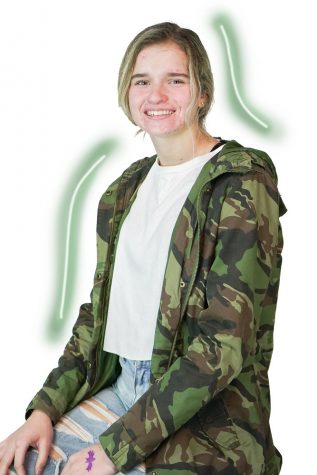Ponder This
Honors Philosophy class opens its doors at NASH.
Honors Philosophy, taught by Mr. Pirring, is in its first year and already has an enrollment of over 100 students. “I want them to learn to think differently,” Pirring said. “I want them to understand themselves and the world better when they leave this class.”
September 17, 2019
What is justice? What is the meaning of life? How do we know that we know?
Heavy questions, but not too heavy for Honors Philosophy, one of NASH’s newest courses.
The start of another year is filled with new classes, new schedules, new memories, and even the possibility of new friends. Students aren’t the only ones at NASH experiencing changes, though. Every year, teachers get a brand new batch of students and sometimes even new courses to teach.
Such is the case for the Social Studies Department’s Mr. Pirring, who spent the summer designing the Honors Philosophy course. The new class was originally proposed when Pirring noticed a gap in the curriculum. He felt that philosophy is a particularly practical and wholly necessary subject.
“Maybe at least in my lifetime, I don’t know if there has been a time that Philosophy has been more needed to ask students to search for the truth and understanding,” he said.
Shortly after the course was proposed, it became clear that Pirring wasn’t the only person interested in a philosophy course. “I really have a love for psychology, and philosophy has some aspects of that,” senior Tanner Duderstadt explained.
Honors Philosophy placed first in a student interest survey, garnering far more support than other potential classes.
“It just became one of those situations where it seemed like the students wanted it, and there was a need for it,” Pirring added. “Someone just had to decide to teach it, and I guess that was going to be me.”
Pirring is thrilled to have this new opportunity, because most schools in our area don’t offer the class. “Whenever I talk to family, friends, and people that I meet and tell them that I’m teaching philosophy, they quickly go back to when they had philosophy,” he said. “They mention that it’s so neat for students to be able to take in high school.”
Unfortunately, preparing for the class is significantly harder than he had expected. “When I first decided to teach it, I had no idea that it was going to require the amount of reading and prep that it has taken,” he said.

After only two weeks, Pirring expressed how he has already started to see his hard work pay off. His students are stepping out of their comfort zones to share their thoughts in discussions. Since the first day, students have been asked some of the deepest philosophical questions and have all responded positively.
“So far I have really enjoyed the class,” said Duderstadt. “It’s also nice that there’s not really a definitive right or wrong answer in philosophy!”
Pirring expects to learn much more as the class completes discussions surrounding questions. “I think that there are so many wonderful questions in the course that could be asked, some that I have created and some philosophers throughout time have created,” he said. “To hear what the students have to say about some of the different questions and topics is amazing, and I think I’m most excited to learn myself.”
If students take only one thing with them when they leave the class, Pirring hopes that it will be the ability to view the world around them differently. “I want them to learn to think differently,” he said. “I want them to understand themselves and the world better when they leave this class.”
Duderstadt added, “I hope to gain an understanding of how I feel about big universal questions.”












